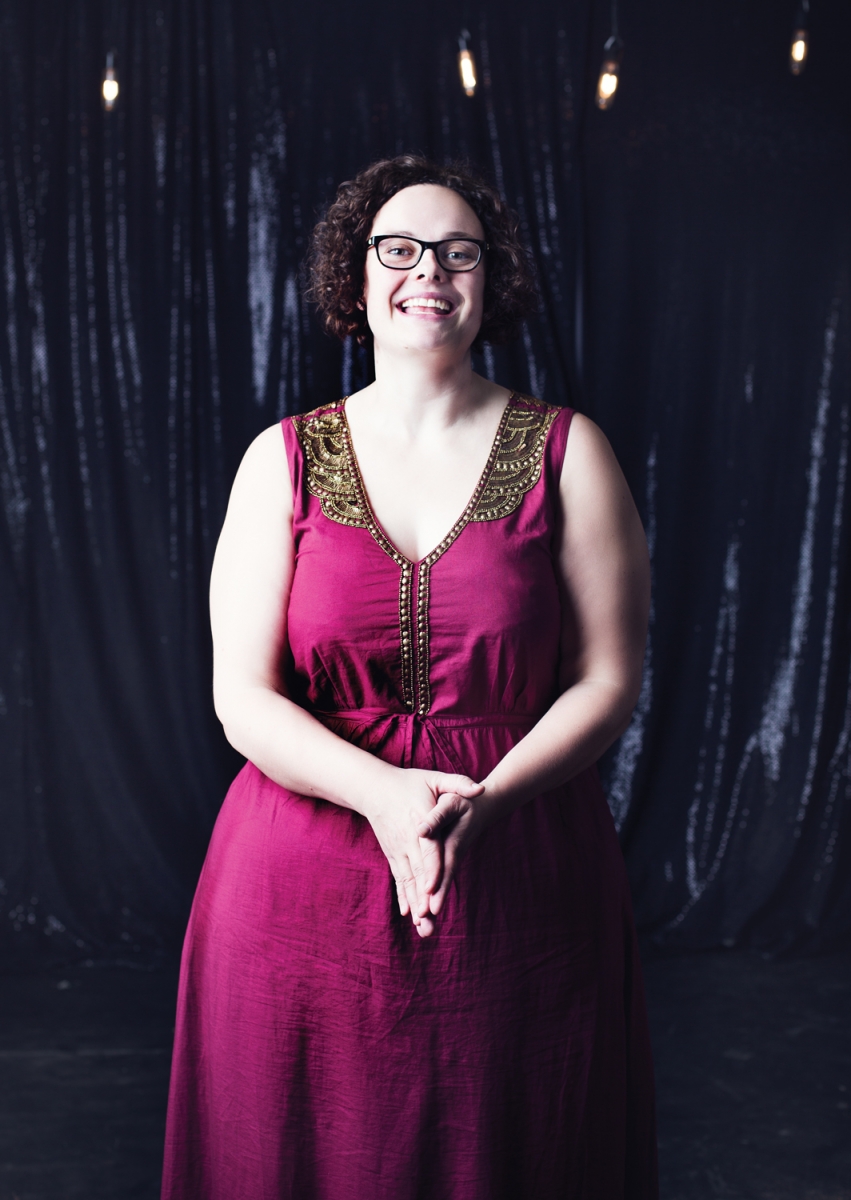Born in Calgary, Pinkoski grew up in Fort Saskatchewan and Sherwood Park. She did an internship at the University of Missouri, which is where she became interested in slam poetry. She moved to Edmonton in 2004 to study at the University of Alberta. (Pinkoski is somewhat of a brain – she has a Bachelor of Arts in Canadian Studies, a Bachelor of Education and a Master’s of Arts, plus she’s currently working on her Master’s of Education.) Since there wasn’t a strong slam-poetry scene in Edmonton when she graduated in 2006, Pinkoski started driving to Calgary a few times a year to compete. Edmonton formed its own poetry slam team in 2010 and, in 2011, the team won nationals, with Pinkoski as captain.
While the slam poetry community in Edmonton has come a long way in the past decade, there is definitely room for growth, says Pinkoski. “It’s always regenerating itself and there are always new voices coming out to be heard, which broadens and strengthens the community.”
It’s a community that draws in both men and women, although it can be tough for women to have their voices heard, says Pinkoski. “There is sometimes a stigma that men are better at slam than women. Going into the finals at nationals last year, there were four people – three gentlemen and me.”
Pinkoski tends to write personal narratives, about everything ranging from her experiences teaching English to immigrants to her sister’s Down’s syndrome. “Spoken-word poetry focuses so much on articulating your story and your voice,” she says. This makes the art form particularly popular with youth. “Students are able to speak their truths about their life and people actively listen to that,” says Pinkoski. “It goes a long way to make students feel like they’re part of the community and that they are being heard.”
Besides the official works she must produce each year, her position is “basically what you make of it,” she says. “Each Poet Laureate has had a different goal. One of my main goals is to make people more aware of poetry in the city.”
Still, it probably won’t be long before Pinkoski makes her return to the national competition stage, if her past success – or her former coach’s faith in her – is any indicator. “Mary could and should win every competition she competes in,” says May-Dunn. “I’ve never seen anyone give as much time and work to their craft as Mary does, and I wouldn’t be shocked at all if she had the Canadian individual title very soon.”
